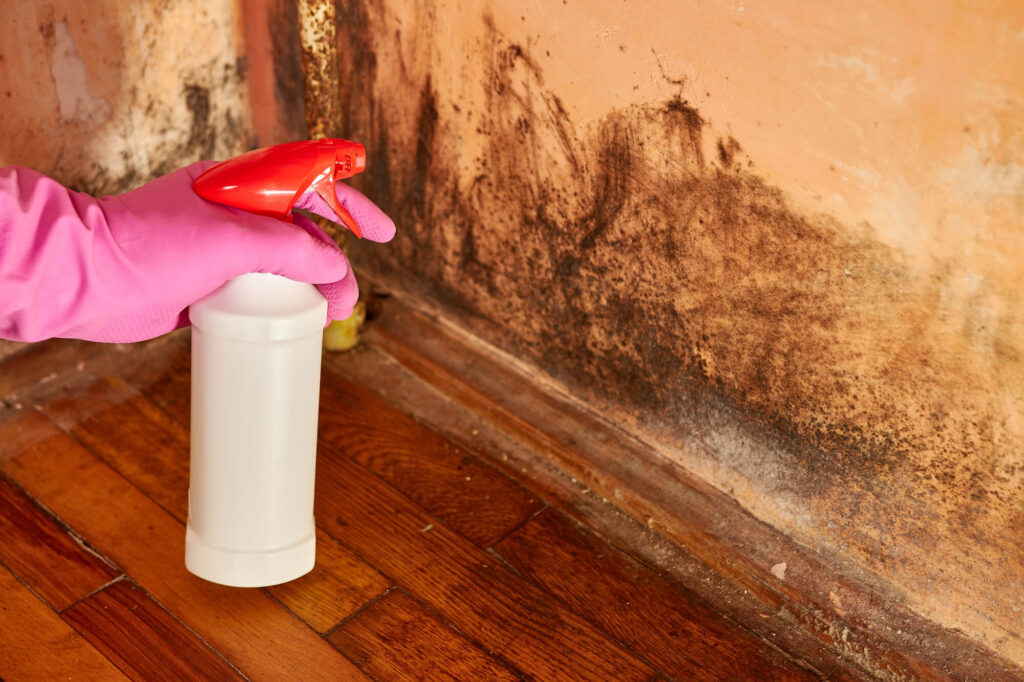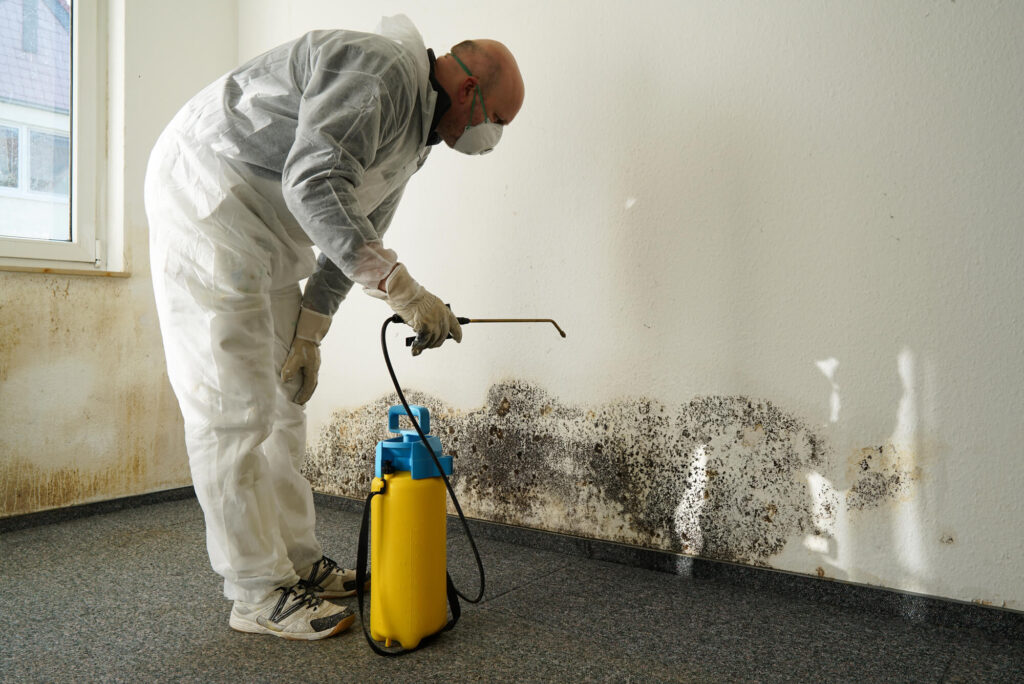Why consider investing in a mold remediation franchise opportunity? The mold remediation industry is a critical sector of the environmental services market, addressing both residential and commercial concerns. This type of investment offers you the chance to build a profitable business model that meets the rising demand for healthier indoor environments and effective solutions to mold-related issues. Mold remediation franchises provide indispensable services that not only improve the safety and quality of living and working spaces but also contribute to the overall health and well-being of clients.
With efficient solutions and the backing of a trusted brand, franchise owners benefit from established processes and support systems that can streamline operations and accelerate growth. If you’re considering entering the franchise world in a service sector that is consistently essential, a mold remediation franchise presents a meaningful and lucrative opportunity.
Explore the potential of the mold remediation industry and learn how a robust franchise system can enhance your business acumen while paving the way for your success as a franchise owner.
Read on to discover why choosing a mold remediation franchise might be the perfect decision for you, and don’t hesitate to request additional information about specific franchises that catch your eye.
What Is a Mold Remediation Franchise?
A franchise in the mold remediation is a business model that involves licensing a brand, trademark, and system from a franchisor to an entrepreneur who wants to operate their own business under the established brand’s name. Franchises benefit from a higher survival rate than typical start-ups due to the utilization of a proven and successful business model adapted to new locations and exclusive territories. Franchisees are required to make an initial investment that includes paying an initial franchise fee, maintaining a specified amount of cash reserves, and paying ongoing monthly royalties to secure the rights to use the brand.
Specifically, mold remediation franchises focus on improving the safety and health of residential and commercial properties by effectively addressing mold issues. This industry is witnessing significant growth due to increasing awareness about health problems associated with mold exposure, making it a lucrative avenue for investors.
Services provided by mold remediation franchises typically include mold inspection, testing, and removal, along with preventive measures to inhibit mold growth. Additional offerings may include water damage restoration, air quality testing, and HVAC cleaning to ensure comprehensive environmental health.
New franchisees are supported by the franchisor through comprehensive training programs, access to an established business model, marketing techniques, partnerships with suppliers, and continuous operational support to help them succeed.
Services And Products Mold Remediation Franchises Can Offer
The mold remediation industry offers an enticing franchise opportunity, with the global mold remediation service market valued at USD 1.34 billion in recent years and projected to grow at a compound annual growth rate (CAGR) of 3.9% from 2025 to 2032. This growth is driven by the increasing awareness of the health risks associated with mold exposure, such as allergies, asthma, and other respiratory issues. As individuals become more informed about the potential long-term health consequences of a mold infestation, they are more inclined to seek professional remediation services to ensure safe living and working environments.
Drywall surfaces, which are particularly vulnerable to mold, accounted for approximately 35.7% of the market share as recently as 2023. Furthermore, residential applications constituted about 58.7% of the market share the same year, highlighting the susceptibility of homes to mold due to everyday moisture-producing activities like cooking, bathing, and laundry, coupled with varying levels of ventilation and maintenance. Meanwhile, the demand for mold remediation in commercial settings is expected to grow at a CAGR of 3.9% from 2024 to 2030, reflecting increasing recognition of the importance of maintaining business environments free from mold-related health hazards.
In the U.S., the mold remediation service market is anticipated to expand at a CAGR of 3.0% from 2024 to 2030, offering both residential and commercial property owners peace of mind by ensuring their spaces are free from the dangers of future mold growth. This market growth pinpoints a burgeoning need for specialized services that effectively tackle mold issues, offering franchisees a stable customer base and a promising path to success.
Starting a franchise in the mold remediation or restoration industry allows entrepreneurs to leverage established business models, comprehensive training programs, and ongoing support from experienced franchisors. These resources help mitigate the inherent risks of starting a new business, enabling franchisees to attract potential clients quickly and establish their presence in the market.
The mold remediation franchise industry is not just a gateway to entrepreneurship; it is a lucrative business opportunity with proven demand and a clear trajectory for growth. As awareness of mold-related health risks continues to rise, franchisees in this sector are well-positioned to thrive by delivering essential services that protect community health and well-being. Explore the rewarding possibilities of the mold remediation franchise world today—protect and enhance lives while achieving your business aspirations.
Here are just some of the types of franchises or lines of services in the mold remediation sector:
Mold Inspection & Testing
Mold remediation begins with expert inspection and testing to assess the presence, extent, and type of mold contamination. Franchise professionals use advanced diagnostic tools such as moisture meters, infrared cameras, and spore traps to identify hidden moisture and mold growth. Air and surface samples may be collected and analyzed by accredited labs to determine the spore count and species present. This data informs the scope of remediation and is essential for post-remediation verification (PRV), ensuring transparency and compliance.
Containment & Air Filtration
Before any remediation work begins, strict containment procedures are established to isolate affected areas and prevent cross-contamination. Negative air machines equipped with HEPA filters are deployed to maintain clean air zones, while poly sheeting and zip walls are used to seal off contaminated environments. This ensures that spores and particulates are not spread to other parts of the building, a critical control step especially in healthcare, commercial, or high-traffic residential spaces.
Mold Removal & Surface Treatment
Mold remediation companies specialize in the safe removal of mold from affected surfaces using a range of techniques tailored to the material and severity of the infestation. Treatments may include HEPA vacuuming, sanding, dry ice blasting, or the application of EPA-approved antimicrobial agents. When appropriate, encapsulants or fungicidal sealants are used to coat remaining surfaces, preventing regrowth. The goal is not only to remove visible mold but also to neutralize residual spores embedded in building materials.
Material Demolition & Disposal
In cases where mold has infiltrated porous materials beyond recovery, controlled demolition is necessary. Franchises can perform safe removal and disposal of contaminated drywall, carpeting, insulation, ceiling tiles, and other compromised materials. All disposal is carried out in accordance with OSHA and EPA regulations, often under containment to maintain indoor air safety. This phase is critical in ensuring that structural elements are cleared for proper reconstruction.
Dehumidification & Structural Drying
After mold removal, thorough drying is crucial to restore a safe, mold-resistant environment. Mold remediation franchises use industrial-grade dehumidifiers, air movers, and hygrometers to reduce indoor humidity to safe levels. Monitoring equipment records moisture levels and ensures all structural components — including subfloors and wall cavities — are properly dried. This step not only halts mold growth but also lays the groundwork for rebuilding.
Odor Removal
Lingering odors caused by mold and mildew can persist even after remediation. Franchises address this issue with professional-grade odor neutralization techniques. These may include hydroxyl generators, ozone treatments (with appropriate safety measures), or antimicrobial fogging systems. By eliminating microbial volatile organic compounds (MVOCs), the service helps restore air quality and occupant comfort, often serving as a strong selling point during property restoration.
Preventive Treatments & Encapsulation
To reduce the risk of mold recurrence, many franchises offer preventive treatments as part of long-term protection plans. This may involve applying mold-resistant coatings or antimicrobial sealants in high-risk areas such as attics, basements, and crawlspaces. Encapsulation solutions are also used to create vapor barriers in vulnerable environments. These treatments are particularly appealing to customers in humid or flood-prone regions, and they often open the door to recurring maintenance contracts.
Water Damage Restoration Integration
Because mold issues often originate from water damage, many mold remediation franchises offer integrated water restoration services. This includes emergency water extraction, structural drying, leak detection, and even roof tarp installations. Offering these services in tandem allows franchises to become a one-stop solution for property owners dealing with plumbing failures, natural disasters, or insurance-related repairs, creating pipeline synergy and added revenue potential.
HVAC Mold Cleaning
Mold spores frequently infiltrate HVAC systems, compromising indoor air quality and spreading contamination. Franchises provide targeted HVAC cleaning services, including ductwork inspection, coil sanitation, and antimicrobial fogging. These services not only address contamination at the source but also prevent re-infestation and can be packaged with air quality monitoring for a comprehensive IAQ offering. This is especially vital in commercial or multi-unit residential buildings.
Documentation & Insurance Support
Professional mold remediation franchises offer detailed reporting and documentation to support insurance claims and regulatory compliance. This includes photographic evidence, lab reports, moisture mapping, and job completion summaries. They may also coordinate directly with insurance adjusters to streamline claims and ensure transparency for property owners. For clients navigating the financial and legal complexities of remediation, this support can be a major decision factor when choosing a franchise partner.
How To Start A Mold Remediation Franchise Business
The benefit of a mold remediation franchise ownership over starting your own company is that you will obtain assistance and will not have to deal with the everyday problems that start-up business owners face, such as designing a comprehensive business plan and model, processes, and branding or marketing materials from the ground up. It helps prospective franchisees to have some industry experience, but you only need a basic understanding and perhaps some experience in sales. If you’re just getting started in a competitive market and want the complete business setup, franchising can provide you with a viable solution to that goal.
Next is a list of things to consider before starting your own mold remediation franchise:
Choose the services you’ll offer
Before starting, you’ll need to determine which services make the most sense for your company. Once you have determined that there is a demand for your business or type of franchise, you need to choose a franchise to invest in. Research different franchise business opportunities and compare the franchise terms, costs, support, and reputation of each one. A franchise consultant can offer qualified advice and put you in contact with the franchisor, where you can then speak with successful franchisees who have a proven track record within the brand and can share their experiences of starting and dealing with the franchise owner, ensuring your final decision is an informed one.
Licensing, Registration, and Certification
Once you have chosen a brand, you will need to attend its initial training to learn about the business model, operations, and marketing plans it offers. You may also need to obtain certain licenses and certifications depending on the type of services you are offering.
Mold remediation franchise owners need to research and understand the specific licensing and certification requirements in their state and industry to operate their business legally and efficiently.
Nonetheless, starting with a franchised business is the best option for anyone thinking about offering mold removal services, which is one of the most well-established and competitive landscape in franchising.
Getting insurance to protect your business (and yourself)
Depending on the nature of your business, you may need to obtain liability insurance, workers’ compensation insurance, or other types of insurance. The cost will depend on the type of coverage you need.
Select the Appropriate Equipment
You may need to purchase equipment and supplies such as pickup trucks, protective equipment for workers, safety gear, uniforms, cleaning materials, tools, etc. The cost of these items will depend on the type and quality of the products you choose. Deciding to partner with a franchise minimizes the work you have to do in locating suppliers and distributors for all of these needs, and the franchisor and franchise partners will have a list of equipment suppliers ready.
How Much Does It Cost To Start A Mold Remediation Business?
You’ll need liquid capital and available time to start up and run a mold remediation company. While starting a business is an exciting operation, it is also costly, especially for those under sole proprietorship. It’s critical to be reasonable when estimating startup costs for a company. Expenses such as retail space, legal fees, payroll, company credit cards, effective marketing strategies, building an online presence, extensive training, payroll costs, equipment, and other daily operation expenses and overhead costs can add up quickly.
By investing in a mold remediation franchise business, you can lower some of the initial and ongoing costs. Yes, you do have to invest in an initial franchise fee, franchising royalty fees, and extra initial investment for supplies and equipment.
The franchise can help you understand the range of additional costs with any mold remediation franchise opportunity.
How To Grow A Mold Remediation Franchise Business
Growing a mold mediation franchise business can be a challenging but rewarding process. Here are some tips to help you expand your mold removal franchise business:
- Focus on Quality
- Establish Strong Customer Relationships
- Have a Strong Work Ethic
- Monitor and Analyze Performance
- Explore New Products and Services
A mold remediation franchise business requires trust and patience with local officials and home and business owners, as well as strategy, effort, customer satisfaction, and persistence.
Mold Remediation Franchise Experience Requirements
Mold Remediation franchise candidates must be high-energy, goal-oriented, have interpersonal skills, and be capable of being proactive in searching for new ways to develop the franchise operation, reach potential customers, and create a loyal customer base. They need to be serious about local waste disposal codes, permits, regulations, and protocols,we are and passionate about helping keep residential and commercial properties healthy and valuable. Above all, serious about customer satisfaction through great results.
The franchisor will teach you everything there is to know about the appropriate services and products after signing the franchise agreement. What they teach during training includes marketing assistance, materials, pricing strategies, and sales. They only need candidates with a go-getter attitude and a positive mindset.
Special Requirements for a Mold Remediation Franchise
A mold remediation franchise is a lucrative venture that provides essential services to both residential and commercial property owners by addressing mold issues that can compromise structural integrity and indoor air quality.
As a mold remediation expert, you play a pivotal role in ensuring healthy living and working environments by effectively identifying, removing, and preventing mold growth. This service is crucial for mitigating health risks associated with mold exposure and for maintaining property value by preventing structural damage. By offering professional mold remediation services, you and your franchise team help property owners protect their investments and ensure a safe, healthy atmosphere for occupants.
Moreover, prompt and effective mold remediation can prevent extensive and costly repairs, making your services indispensable. By choosing the franchise journey, you position yourself for success in a vital industry while delivering critical services to your community.
Certifications And Licenses In Some States For Mold Remediation Franchises
Generally, any successful mold remediation business needs a basic business license to operate legally.
Additionally, depending on the scope of your business, you may need to follow specific health and safety regulations, especially when dealing with hazardous materials or operating heavy machinery.
Although not always required, many companies in the residential and commercial restoration industry choose to obtain certifications voluntarily to showcase their proficiency and dedication to high standards.
If a business offers specialized services such as mold remediation or carpet cleaning, it might need certifications from industry-specific organizations or regulatory bodies. For instance, the Institute of Inspection, Cleaning, and Restoration Certification (IICRC) provides certifications for carpet cleaning, mold remediation, and water damage restoration, or the Green Seal Certification, which recognizes businesses that use environmentally safe cleaning products and practices. There is also the National Organization of Remediators and Mold Inspectors (NORMI) Certification, which provides training for businesses offering mold-related services.
Any potential mold remediation franchisee must consider this when deciding on what industry area to focus on. Nonetheless, a restoration or cleaning business is not as challenging to comply with compared to medical or health franchises, for example, and a franchise consultant can help you determine if your choice of mold remediation franchise business will need any certifications and licenses.
But that’s also the benefit of franchising, as the franchisor already has experience with this and will help prepare new franchisees and their employees for any regulatory hurdle, including ongoing training programs and established operating procedures.
Mold Remediation Franchise Cost
The cost of a mold removal franchise can vary greatly depending on various factors, such as the type of franchise, the size of the business, the real estate or office space needed, the equipment (trucks, cleaning supplies), the territory for the franchise location, and the franchise company recurring and initial franchise fees and requirements.
Financing
Franchises for the mold remediation sector often require an initial investment of $100,000 to $250,000. Many new franchisees obtain funding from banks or other financial lending institutions, such as the SBA Small Business Administration (government-backed loans).
Banks and lenders are generally more inclined to support franchise businesses due to their demonstrated success and stability. This translates to better credit terms for franchisees, a benefit rarely afforded to independent ventures. The key distinction lies in the security offered by a tested franchise model, which contrasts sharply with the uncertainty surrounding independent business plans.
Profit
Investing in a mold remediation franchise offers a unique opportunity to combine the stability of a proven business model with the flexibility of entrepreneurship. By leveraging a recognized brand and established systems, franchisees can reduce initial investment costs, minimize risks, and achieve a better work-life balance. This approach provides a solid foundation for building equity and financial independence.
Why A Mold Remediation Franchise Is A Good Investment
As you can see, franchise ownership has lots of advantages. The most important one is that a tested system and franchise network will support you and provide you with resources. As a result, your business will experience less danger and greater security, giving you a rewarding opportunity that allows you to concentrate on what really matters—growing your successful mold remediation business, giving excellent customer service, satisfying your clients, and giving you the freedom to control your time!





